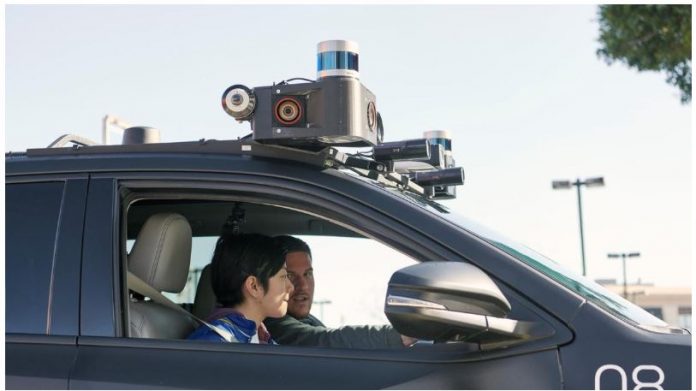The Emirates featured in the top 10 for the third year in a row, ahead of the UK and Denmark
The UAE edged up one place to eighth in KPMG’s annual Autonomous Vehicles Readiness Index, performing well in technology infrastructure and the willingness of its people and government to embrace driverless cars.
Since KPMG first released the index in 2018, widespread excitement around the technology has given way to public scepticism that AVs may be “all hype”, Richard Threlfall, KPMG’s global head of infrastructure, said. But this year the industry “entered a period of development maturity, during which the complex challenges of implementation are being addressed”.
New regulations and large-scale tests of driverless cars are underway in many jurisdictions worldwide, according to the Dutch consulting and audit firm.
“We are also seeing AVs move into use around the world in public transport and in closed-site environments such as mining and logistics,” Mr Threlfall said.
The World Health Organisation estimates that there are 1.35 million road deaths and 50 million car-related injuries annually, with human error responsible in around 95 per cent of cases. AVs have the potential to make roads dramatically safer and more efficient.
KPMG’s 2020 ranking assessed countries’ level of preparedness and openness to autonomous vehicle technology, and their progress in making driverless cars a reality. The consultancy looked at each country’s public policy on AVs, its track record of technology and innovation, infrastructure and consumer acceptance.
The UAE was placed in the top 10 for the third year in a row, ranking ahead of the UK and Denmark but after Singapore, the Netherlands, Norway, the US, Finland, Sweden and South Korea on the index.
Also Read: 35 thousand crores reached in the accounts of farmers in 6 months as soon as the rules are changed
The UAE scored highest among the 30 countries on measures of change readiness for new technology infrastructure and mobile data speeds, as well as the readiness of people to embrace driverless cars. It also ranked third on a measure of the efficiency of its legal system in challenging regulations.
The country’s focus on developing smart technologies will play a significant role in the adoption of AVs, Ravi Suri, global head of infrastructure finance at KPMG in the Lower Gulf, said.
The UAE is continuing with its strategy of making 25 per cent of transport autonomous by 2030, a move initiated in 2016.
“The UAE continues to remain steadfast in its resolve to move towards autonomous vehicles,” Mr Suri said. “Given its strong interest in AI, blockchain, 5G and maintaining good-quality roads, they are on the way to doing it.”
The coronavirus pandemic could also boost the case for the adoption of driverless cars as shared vehicles become less attractive to users, KPMG found.
While Covid-19 has slowed some major AV testing programmes, money continues to be poured into the industry with policy and testing efforts in some cities keeping pace.
In April, US ride-hailing company Uber resumed testing of AVs in its home city San Francisco, two years after one of its vehicles was involved in a fatal accident in Arizona. Japan’s AV laws came into force in April as well, including an inspection regime and a permit system. In March, Abu Dhabi’s strategic investment firm Mubadala joined a consortium investing $2.25 billion (Dh8.26bn) in Waymo, a self-driving technology company owned by Google’s parent Alphabet and in June Amazon agreed to pay roughly $1.2bn for Zoox, which is a developer of autonomous vehicles.
In other industries like manufacturing and logistics, the pandemic has increased both demand and opportunity for automation, and in a few cases AVs have been brought into use to make deliveries instead of people. US healthcare provider Mayo Clinic and Florida’s Jacksonville Transportation Authority have been using four AVs to move tests from a drive-through location to a lab, with no human supervision on isolated routes.
“I continue to see AVs as enabling an impending revolution that will strengthen our societies and economies, while making the world’s roads safer and more accessible to everyone,” Mr Threlfall said.




